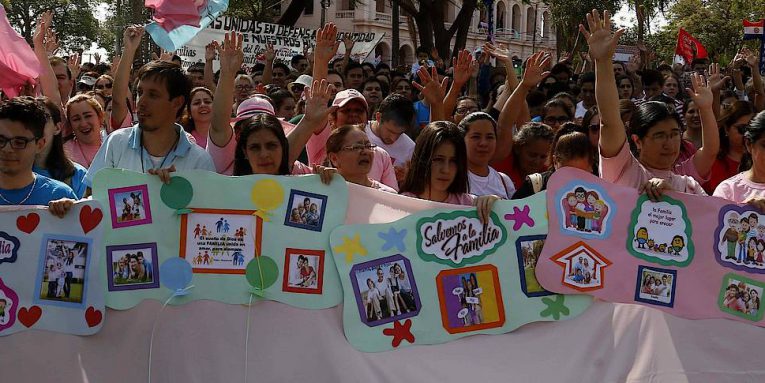By holding its 64th session in Sharm El Sheik, Egypt, the African Commission on Human and Peoples Rights (ACHPR) demonstrates again its lack of commitment to the protection and the promotion of human rights in Africa.
Human rights organisations signatories to this statement made a decision to boycott the NGO Forum and the 64thsession of the African Commission on Human and Peoples’ Rights (ACHPR) opening on 24 April 2019 in Sharm El Sheikh in Egypt. Egypt has taken a leadership role in dismantling the African human rights system through its regressive participation in the passing of the decision 1015 by the Executive Council of the African Union. By accepting the invitation of Egypt to host its ordinary session, the ACHPR is contributing to white-washing the human rights abuses that the Egyptian State is perpetrating and its current attacks on regional accountability institutions, human rights defenders, and the right of women and marginalised people to bodily autonomy.
As civil society organisations that have been working at the African commission for over 14 years, we refuse to follow suit and bow to State tyranny especially at the hands of a State that has a horrendous track record of serious human rights violations – including arbitrary executions – and which has rejected calls from the same African Commission to stop the gross violations that the current regime has committed against any dissenting voice, including journalists, lawyers, human rights defenders, women’s rights activists and sexual and gender diverse communities.
We are concerned by the lack of firm and clear leadership from the NGO Forum in preserving a meaningful space for engagement, and concerned about the safety of civil society delegates who have travelled to Egypt and who are under state surveillance and therefore at a heightened risk of arrest as we issue this statement.
In October 2018, the NGO Forum refusal in Banjul to adopt and publish a joint resolution that was supported by civil society ahead of the 63rd session, which explicitly requested the ACHPR to reject the invitation by Egypt to host the 64thsession in Egypt, plays into the hands of States behind the dismantling of the ACHPR project, and facilitates the dissolution of the only remaining regional accountability system on the continent. In doing so, the NGO forum indirectly participates in the erosion of the African human rights system and weakens the ACHPR.
The acceptance of Egypt’s invitation to host this session further serves as a demonstration that the ACHPR has surrendered its independence to African States following Decision 1015 of the Executive Council. The NGO Forum further failed to honour a proposal put forward by Civil society organisations that met on 23 October 2018 in Banjul, to hold a “Peoples’ Commission” as an alternative to Egypt’s hosting of the African Commision and adopt appropriate resolutions. This is a betrayal of the peoples of Africa and the constituents represented through the NGO Forum.
We are disappointed that the NGO Forum chose to be a follower of tyranny and the oppressors of African peoples in failing to speak truth to power and to uphold the demands and resolution of more than 100 civil society organisations that met and deliberated on the threats to the independence of the African Commission on 23rd October 2018 in Banjul. By proposing an alternative venue to deliberate as civil society and citizens of this continent, our message was loud and clear: that peoples, activists, human rights defenders and others on the continent cannot bow to the pressure of the Executive Council and States exporting dictatorship, oppression, and suppression of civil society voices, amongst which Egypt plays a leading role. That is not the Africa we want.
Our decision to boycott the 64th session and the preceding NGO Forum is not in any way an expression of lack of solidarity with Egyptian civil society organisations that have been operating under extreme state pressure and persecution. It is a gesture of empathy and support to survivors of the suppression of liberties and fundamental freedoms the Egyptian State has adopted as policy in the name of security and anti-terrorism.
We stand in solidarity with victims, survivors and all those who have been forced to flee the country due to their human rights activism and their dissenting voice, which are ruthlessly suppressed by the Egyptian government.
We therefore:
-
- Demand that African states that believe in human and peoples’ rights as enshrined in the African Charter on Human and Peoples’ Rights (the Charter) speak out and preserve the independence of the African Commission, the primary organ tasked with holding states accountable and for advancement of human and peoples’ rights on our continent;
- Request that the African Commission work closely with the African Court on Human and Peoples’ Rights and the Committee on the Rights and the Welfare of the Child to develop a joint response to Decision 1015 of the Executive council; Affirming the independence, autonomy and complementarity of various organs of the African human rights system;
- Demand that the NGO Forum organise elections and change leadership to ensure an inclusive, young and innovative governance structure that listens to and upholds all CSOs’ voices and advances a peoples’ focused agenda;
- Urge civil society representatives who travelled to Egypt to exert caution in their movements, internet searches, and social media use, given the ruthlessness of the hosting country and the realisation that neither the NGO Forum nor the African Commission can guarantee their safety and security;
- Call on sister organisations that boycotted the 64th session and the preceding NGO Forum to endorse this statement and engage various stakeholders for action to address the increasing threats against the African human rights system.
- Call upon partners technically and financially supporting the African Union to request guarantees that such support is not used to dismantle the African human rights accountability system by undermining the independence of the African Commission.
Issued by:
African Men for Sexual Health and Rights (AMSHeR)
& Coalition of African Lesbians (CAL)


